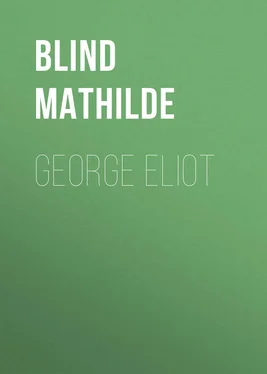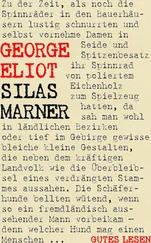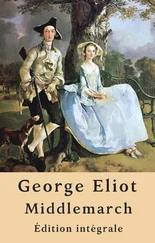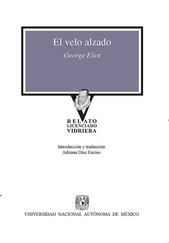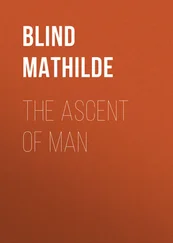Mathilde Blind - George Eliot
Здесь есть возможность читать онлайн «Mathilde Blind - George Eliot» — ознакомительный отрывок электронной книги совершенно бесплатно, а после прочтения отрывка купить полную версию. В некоторых случаях можно слушать аудио, скачать через торрент в формате fb2 и присутствует краткое содержание. ISBN: , Жанр: foreign_antique, foreign_prose, Биографии и Мемуары, на английском языке. Описание произведения, (предисловие) а так же отзывы посетителей доступны на портале библиотеки ЛибКат.
- Название:George Eliot
- Автор:
- Жанр:
- Год:неизвестен
- ISBN:http://www.gutenberg.org/ebooks/36847
- Рейтинг книги:3 / 5. Голосов: 1
-
Избранное:Добавить в избранное
- Отзывы:
-
Ваша оценка:
- 60
- 1
- 2
- 3
- 4
- 5
George Eliot: краткое содержание, описание и аннотация
Предлагаем к чтению аннотацию, описание, краткое содержание или предисловие (зависит от того, что написал сам автор книги «George Eliot»). Если вы не нашли необходимую информацию о книге — напишите в комментариях, мы постараемся отыскать её.
George Eliot — читать онлайн ознакомительный отрывок
Ниже представлен текст книги, разбитый по страницам. Система сохранения места последней прочитанной страницы, позволяет с удобством читать онлайн бесплатно книгу «George Eliot», без необходимости каждый раз заново искать на чём Вы остановились. Поставьте закладку, и сможете в любой момент перейти на страницу, на которой закончили чтение.
Интервал:
Закладка:
Mr. Bray, an enthusiastic believer in phrenology, was so much struck with the grand proportions of her head that he took Marian Evans to London to have a cast taken. He thinks that, after that of Napoleon, her head showed the largest development from brow to ear of any person's recorded. The similarity of type between George Eliot's face and Savonarola's has been frequently pointed out. Some affinity in their natures may have led her, if unconsciously, to select that epoch of Florentine life in which he played so prominent a part.
Though not above the middle height Marian gave people the impression of being much taller than she really was, her figure, although thin and slight, being well-poised and not without a certain sturdiness of make. She was never robust in health, being delicately strung, and of a highly nervous temperament. In youth the keen excitability of her nature often made her wayward and hysterical. In fact her extraordinary intellectual vigour did not exclude the susceptibilities and weaknesses of a peculiarly feminine organisation. With all her mental activity she yet led an intensely emotional life, a life which must have held hidden trials for her, as in those days she was known by her friends "to weep bucketfuls of tears."
A woman of strong passions, like her own Maggie, deeply affectionate by nature, of a clinging tenderness of disposition, Marian Evans went through much inward struggle, through many painful experiences before she reached the moral self-government of her later years. Had she not, it is hardly likely that she could have entered with so deep a comprehension into the most intricate windings of the human heart. That, of course, was to a great extent due to her sympathy, sympathy being the strongest quality of her moral nature. She flung herself, as it were, into other lives, making their affairs, their hopes, their sorrows, her own. And this power of identifying herself with the people she came near had the effect of a magnet in attracting her fellow-creatures. If friends went to her in their trouble they would find not only that she entered with deep feeling into their most minute concerns, but that, by gradual degrees, she lifted them beyond their personal distress, and that they would leave her presence in an ennobled and elevated frame of mind. This sympathy was closely connected with her faculty of detecting and responding to anything that showed the smallest sign of intellectual vitality. She essentially resembled Socrates in her manner of eliciting whatsoever capacity for thought might be latent in the people she came in contact with: were it only a shoemaker or day-labourer, she would never rest till she had found out in what points that particular man differed from other men of his class. She always rather educed what was in others than impressed herself on them; showing much kindliness of heart in drawing out people who were shy. Sympathy was the key-note of her nature, the source of her iridescent humour, of her subtle knowledge of character, and of her dramatic genius.
CHAPTER IV.
TRANSLATION OF STRAUSS AND FEUERBACH. – TOUR ON THE CONTINENT
Miss Brabant's marriage to Mr. Charles Hennell occurred some months after this excursion to Tenby. In the meanwhile it was settled that Miss Evans should continue her translation of Dr. Strauss's Leben Jesu . Thus her first introduction to literature was in a sense accidental. The result proved her admirably fitted for the task; for her version of this searching and voluminous work remains a masterpiece of clear nervous English, at the same time faithfully rendering the spirit of the original. But it was a vast and laborious undertaking, requiring a large share of patience, will, and energy, quite apart from the necessary mental qualifications. On this occasion, to fit herself more fully for her weighty task, Marian taught herself a considerable amount of Hebrew. But she groaned, at times, under the pressure of the toil which had necessarily to be endured, feeling tempted to relinquish what must often have seemed almost intolerable drudgery. The active interest and encouragement of her friends, however, tided her over these moments of discouragement, and after three years of assiduous application, the translation was finally completed, and brought out by Dr. (then Mr.) John Chapman in 1846. It is probably safe to assume that the composition of none of her novels cost George Eliot half the effort and toil which this translation had done. Yet so badly is this kind of literary work remunerated, that twenty pounds was the sum paid for what had cost three years of hard labour!
Indeed, by this time, most of the twelve friends who had originally guaranteed the sum necessary for the translation and publication of the 'Life of Jesus,' had conveniently forgotten the matter; and had it not been for the generosity of Mr. Joseph Parkes, who volunteered to advance the necessary funds, who knows how long the MS. translation might have lain dormant in a drawer at Foleshill? It no sooner saw the light, however, than every one recognised the exceptional merits of the work. And for several years afterwards Miss Evans continued to be chiefly known as the translator of Strauss's Leben Jesu .
Soon after relieving Miss Brabant from the task of translation, Miss Evans went to stay for a time with her friend's father, Dr. Brabant, who sadly felt the loss of his daughter's intelligent and enlivening companionship. No doubt the society of this accomplished scholar, described by Mr. Grote as "a vigorous self-thinking intellect," was no less congenial than instructive to his young companion; while her singular mental acuteness and affectionate womanly ways were most grateful to the lonely old man. There is something very attractive in this episode of George Eliot's life. It recalls a frequently recurring situation in her novels, particularly that touching one of the self-renouncing devotion with which the ardent Romola throws herself into her afflicted father's learned and recondite pursuits.
There exists a letter written to an intimate friend in 1846, soon after the translation of Strauss was finished, which, I should say, already shows the future novelist in embryo. In this delightfully humorous mystification of her friends, Miss Evans pretends that, to her gratification, she has actually had a visit from a real live German professor, whose musty person was encased in a still mustier coat. This learned personage has come over to England with the single purpose of getting his voluminous writings translated into English. There are at least twenty volumes, all unpublished, owing to the envious machinations of rival authors, none of them treating of anything more modern than Cheops, or the invention of the hieroglyphics. The respectable professor's object in coming to England is to secure a wife and translator in one. But though, on inquiry, he finds that the ladies engaged in translation are legion, they mostly turn out to be utterly incompetent, besides not answering to his requirements in other respects; the qualifications he looks for in a wife, besides a thorough acquaintance with English and German, being personal ugliness and a snug little capital, sufficient to supply him with a moderate allowance of tobacco and Schwarzbier , after defraying the expense of printing his books. To find this ph[oe]nix among women he is sent to Coventry on all hands.
In Miss Evans, so she runs on, the aspiring professor finds his utmost wishes realised, and so proposes to her on the spot; thinking that it may be her last chance, she accepts him with equal celerity, and her father, although strongly objecting to a foreigner, is induced to give his consent for the same reason. The lady's only stipulation is that her future husband shall take her out of England, with its dreary climate and drearier inhabitants. This being settled, she invites her friends to come to her wedding, which is to take place next week.
Читать дальшеИнтервал:
Закладка:
Похожие книги на «George Eliot»
Представляем Вашему вниманию похожие книги на «George Eliot» списком для выбора. Мы отобрали схожую по названию и смыслу литературу в надежде предоставить читателям больше вариантов отыскать новые, интересные, ещё непрочитанные произведения.
Обсуждение, отзывы о книге «George Eliot» и просто собственные мнения читателей. Оставьте ваши комментарии, напишите, что Вы думаете о произведении, его смысле или главных героях. Укажите что конкретно понравилось, а что нет, и почему Вы так считаете.
